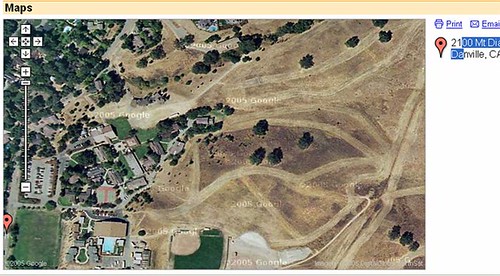As you probably know, Bill Frist and his fellow Senate Bullies are trying to push through what is known as the nuclear option--or, according to recent, better, coinage, the Crybaby Option--to make sure that there is no failsafe method for the minority to have a say in the confirmation of federal and Supreme Court judges*. Here's a WashingtonPost article on this effort and the wide opposition it faces. I got the article from a MoveOn email sent out by my friend and MoveOn Advocacy director Ben Brandzel, summarizing the efforts the minority has taken to defend its rights:
You've sent 44246 personal letters to the editors of 3082 newspapers. . .After receiving your letters over 400 editorials have now been written by the newspapers themselves opposing the "nuclear option". . .You've made 104,000 calls (that we know of!) to your senators. . .You've raised $833,518 (with an average contribution of $43 dollars) -- enough to put hard hitting television and radio ads on the air nationwide and in the home states of target senators. . . .And yesterday you organized 192 major simultaneous rallies in all 50 states (a first for MoveOn!) blanketing the nation with local and national news reports and eliminating any doubt that the American people are ready to stand up and fight for our democracy. (Emphases mine.)Nick and TalkingPointsMemo have brought to my attention a particularly creative protest of Senator Frists efforts to change the rules : Princeton Students are protesting outside the Frist Center which the family of the Senator (an alum) donated to the campus, holding a continuous filibuster. But it's not just students, and I'm proud to say that some of the first faculty to join them include the famous physicist husband and wife couple of Ed Witten and Chiara Nappi: As Nick wrote to me, Witten shows 'em how it's done. (Note the use of Griffith's Elementary Particles. If you're gonna protest, protest in style.) The students' website is www.FilibusterFrist.com, and they have a 30-second updating webcam of sorts. More physics on Friday night, with 2004 Nobel Laureate Frank Wilczek taking a stand at 8:30 PM Eastern time. Josh Marshall is trying to organize a way to coordinate the sending of pizza and coffee to keep them going, and he'd also like some techy to help fix their web cam contraption. (This is where Saheli* looks suggestively in the direction of Princeton's radio astronomy laboratories.) Perhaps Fabio could make an appearance?
The AP has covered it, and Newsday is the most major paper I've found running the story. Hopefully papers in Philadelphia will cover it as well, since they've got two Republican Senators. It would be great if this stunt could be picked up in other schools, schools in states with Republican Senators. Vanderbilt? PennState? Boulder? ASU? Contact your reddish state friends! It doesn't have to be at a University, either. It seems like a lot of fun, but my Senators are already on my side.
Update: Al Gore's gave a great speech on the subject on Wednesday. I also forgot to say that if I was filibustering, I might very well try to get my hands on the screenplay of the All-American Frank Capra political classic: Mr. Smith Goes to Washington. It's a brilliant film with what I consider to be a flawed ending (I can't imagine Frist having as much conscience as Senator Harrison Paine), nicely showcasing the role that the filibuster has in allowing the minority to fight tyranny of the majority. Hollywood legend--and Republican--Frank Capra would probably be turning over in his grave if he knew what his party was trying to do today.
(*To summarize why this is fight is so crucial: our Democracy is a Republic with civil rights and due process in place to protect the minority (however it's formulated) from Tyranny by the Majority. The most important branch of government for that protection is the Judiciary. Appointing Judges who cannot appeal to the mainstream profoundly weakens that protection, increasing the possibility that we will morph from a Republic of Liberty to a mob.)










